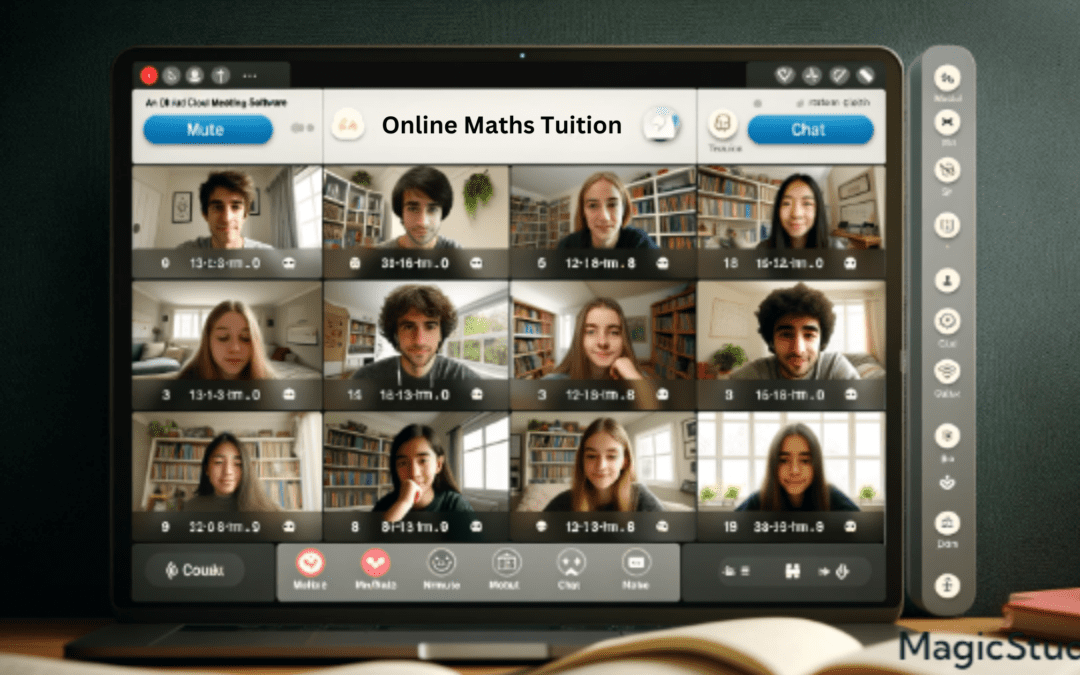What Are the Benefits of Studying Mathematics in Group-Based Online Classes?
Digital technology has completely transformed the realm of education. Online group maths tuition has seen a significant increase in popularity. Therefore, this mode of learning is not only demanded by changes in the world but also should be treated as a strategic and effective approach to mathematics education. Online group maths tuition is multi-beneficial, and this exhaustive guide discusses various aspects of the subject in detail to show how it can be beneficial for learning.
Understanding Online Group Maths Tuition
It is first important for one to know what online group maths tuition is before delving into the merits. Primarily, it is a learning mode where the students participate in math lessons through digital platforms, but together. This is an approach that blends the elements of interaction from classroom teaching with distance learning.
Advantages of Virtual Math Classes
As such, virtual math classes offer a variety of benefits, accessibility being the most notable one. This eliminates distance-related limitations in that anyone, anywhere, can easily attend a class. It is an inclusive registry that supports a rich learning environment where students interact with one another from different backgrounds and points of view.
Pros of Online Math Group Learning
- Interactive Learning Environment: Despite being virtual, these classes often offer interactive tools like live quizzes, collaborative platforms, and instant feedback mechanisms.
- Flexibility: Students can access lessons at times convenient for them, making it easier to balance studies with other commitments.
Online Maths Tuition Perks
Online math tuition has some advantages, especially in the content delivery format. In this way, digital tools allow tutors to present mathematics more engagingly through animations and simulations. This approach makes learning more engaging and effective for students who may not fare well with traditional teaching methods.
Benefits of Digital Group Math Tutoring
Another significant advantage of digital group math tutoring is that it nurtures a collective learning environment. Working together on problems, sharing ideas, and support in each other’s learning is common among students but often not the case in individual online learning scenarios.
Online Group Mathematics Coaching Advantages
Group coaching in an online setup has unique advantages:
- Peer Learning: Students learn not just from the tutor but also from their peers.
- Diverse Perspectives: Exposure to different methods and viewpoints in problem-solving.
- Customized Learning Paths: In online group settings, tutors can offer customized learning paths within the curriculum, catering to different learning speeds and styles.
- Enhanced Participation: Shy or reserved students often find it easier to participate in an online setting, leading to more inclusive class discussions.
Gains from Web-Based Maths Group Lessons
Virtual lessons are extremely rich and knowledge-wise salubrious because they provide a wealth of information. Numerous online resources and platforms are available to students to support their education.
- Access to Global Experts: Students have the opportunity to learn from tutors across the globe, gaining exposure to various teaching methodologies and mathematical applications.
- Cost-Effectiveness: Generally, online group lessons are more economical than individual tutoring, making quality education more accessible.
Positive Aspects of Virtual Math Tuition for Groups
Online group tuition ensures that learning is both collaborative and individualized. Tutors can provide group instruction while also attending to the unique needs of each student.
- Convenience and Comfort: Learning from home or a familiar environment reduces anxiety for many students, leading to better focus and performance.
- Safe Learning Environment: During times when physical proximity might be challenging, online group tuition provides a safe and uninterrupted learning journey.
Merits of Online Collective Maths Education
Online collective math tuition fosters a sense of community among students, and this increases their motivation as well as engagement. The common learning objectives and experiences generate an atmosphere of support and encouragement.
- Learning Autonomy: Online learning encourages students to take charge of their education, fostering important life skills like time management and self-discipline.
- Continuous Access to Learning Materials: Students can access and review the study materials and recorded sessions anytime, aiding in revision and self-paced learning.
Upsides of E-Learning in Maths for Groups
E-learning in maths offers significant upsides:
- Technological Literacy: Students become more adept at using digital tools.
- Adaptability: E-learning environments encourage adaptability and self-directed learning.
- Eco-Friendly Learning: Virtual learning reduces the need for physical materials and commuting, contributing to environmental conservation.
- Community Building: Online platforms often have forums or chat groups where students can interact, discuss, and support each other outside of scheduled class times.
Virtual Group Mathematics Tuition Benefits
Virtual group tuition benefits include:
- Immediate Feedback: Instant assessments and feedback help in timely understanding and improvement.
- Recorded Sessions: Students can revisit lessons for better comprehension.
- Versatility in Teaching Methods: Tutors can use various online tools to cater to different learning styles—visual, auditory, and kinesthetic.
- Real-Time Problem-Solving: Instant interaction allows for real-time problem-solving and brainstorming, making the learning process dynamic and engaging.
My Maths Club: A Hub of Qualitative Online Group Maths Tuition for IGCSE & A-levels
As we delve into the lively and complex advantages of online group maths education, it is clear that this form of learning does not simply represent a passing fad but rather an important step in educational approaches. Now, it’s time to take the next step on your or your child’s mathematical path.
Introducing mymathsclub.com your portal to a new world of innovative, interactive, and inclusive online group maths tuition for IGCSE & A-level Mathematics. ֘ We offer a perfect combination of expert tutors, interactive lessons, and a supportive learning environment that allows mastering maths to be an enjoyable as well as rewarding experience.
Regardless of whether you’re struggling to understand fundamental ideas or striving for greater challenges, mymathsclub.com personalizes your learning journey in response to what you need. We are not just another place for you to study as a student; we form part of an energetic society that loves Math.
Never let geographic barriers restrict your learning capabilities. Join other students worldwide who are already enjoying the benefits of online group maths tuition. Make the first step in developing your arithmetic skills and self-confidence.
Visit My Maths Club today and discover the joy and convenience of learning IGCSE, and A-levels maths online. Enroll now and be part of a community that celebrates every mathematical challenge as an opportunity to grow and excel.
Your future in mathematics is just a click away. Join us and be part of the revolution in maths education.
Explore. Engage. Excel. Welcome to MyMathsClub.com.
CONCLUSION
In conclusion, online group maths tuition is not merely a temporary solution but a sound educational design that has lots of advantages. It combines technology and collaborative learning, being an adaptable, inclusive, and efficient method of mastering mathematics. In the future of educational maturity, it is obvious that online group maths tuition is central to creating self-assured, proficient, and holistic learners.
About mymathsclub.com online education website’s founder, teacher and author of this blogpost Maria Mehmood: Maria Mehmood is a digital marketer, blogger, and online mathematics educator. After completing her Master’s degree in Pure Mathematics, she has been teaching Mathematics online since 2012. She loves sharing her enthusiasm for mathematics with her students and finding creative ways to make learning the subject enjoyable. She also enjoys acquainting people with trending topics in Mathematics and digital marketing through her blog posts.



